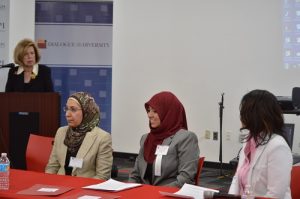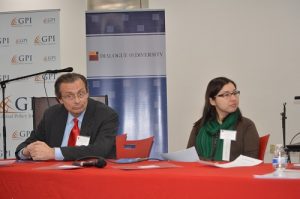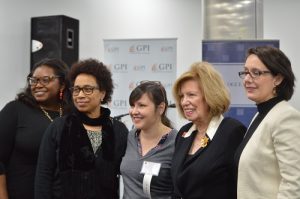Events
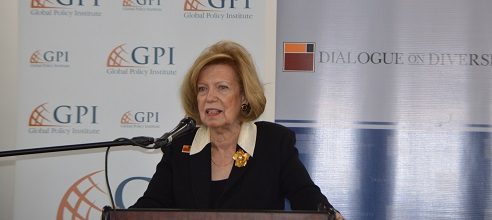
Public Policy Forum 2017 — Women’s Lot: Progress vs. Tradition
Dialogue on Diversity in partnership with the Global Policy Institute and with collaborating organizations, celebrated Women’s History Month with an event on March 23rd, 2017 in Washington DC. The current Forum has been an early example of a collaboration between the Dialogue on Diversity and the Global Policy Institute.
Welcome speeches delivered by Dialogue President Ma. Cristina Caballero and President of GPI Mr. Paolo von Schirach.
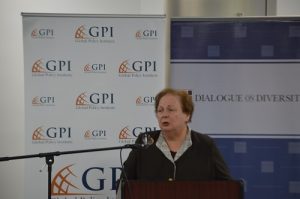
Hon. Mari Carmen Aponte
The main Forum speaker, inspiring a capacity noon-time audience, was Hon. Mari Carmen Aponte, former White House Ambassador to El Salvador and Assistant Secretary of State for Western Hemisphere Affairs. Study by Americans of the U.S. focusing on the language and cultures and economic stresses of the Americans of the Latino world, was seen as the key to constructive relationships. She turned to an account of her personal experiences, both the disappointments of multiple rejections of her Ambassadorial appointments, and her eventual service nevertheless for several years as Ambassador and, more important yet, the record of solid accomplishment on the Western Hemisphere front. Her anguish, through a long siege of self-examination, yielded a healthy optimism, which was soon affirmed by her State Department post. The recital was deeply moving for hearers and, also, drove home the now universal conclusion that the Senate opposition to Ms. Aponte’s confirmation had been largely detached from any factual basis and was founded in an unbudging animus in a small core of opponents.
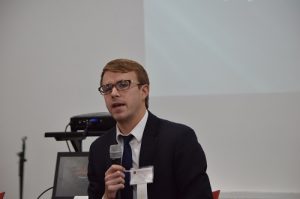
David Bier
An immigration session closing the Forum brought together Lilia Alvarez, Esq., an immigration law expert in private practice and subsequently a highly innovative Judge in the Phoenix, Arizona metro area, who now has taken over leadership of legal representation in Washington’s CARACEN organization; David Bier of the Cato Institute, who calmly debunked a long series of commonly voiced objections to immigrants and their entry (the historical normality of present immigration levels, their relatively slight influence on domestic wages, and the facts persuasively testifying to the immigrant crime rate as, far from rampant, in fact roughly half of that of native born Americans); Professor von Schirach returned to sum up, in a broad, carefully nuanced commentary, the social and economic effects of immigration.
Added highlights of the Forum agenda were the other key policy themes, each sounded against the backdrop of the
women’s history motif. Education practice, from pre-K to mid-career, headed the list. Julie Anderson of the Institute for Women’s Policy Research recounted needs for support of various kinds for women during job training and other educational projects. Lisa Ransom, who manages the Augustus Hawkins Foundation (named for the quietly effective member of the House of Representatives who during the mid-post-war years engineered uniquely effective educational and workplace policies) outlined the special concerns of the Foundation and its tireless work advancing education policies and projects around the country. Roberta Rincon, of the Society of Women Engineers, analyzed the strategies of women’s STEM studies and subsequent careers.
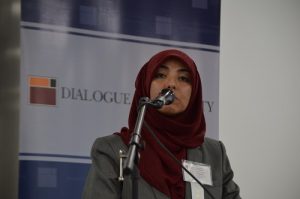
Danieh Shuaib
Merging panels on economics and the worldwide condition of women brought into sharp relief the existence of greatly varied states of culture and law, while sometimes affording women real economic opportunities, often stunting these by wage gaps and promotion ceilings – these persuasively detailed by Carol Joyner, of the Labor Project for Working Families, followed by Ana Harvey, Director of the D.C. Department of Small and Local Business Development. Sadly, far more rigid barriers, however gradually being eroded, were described by Ursula Casabonne of the World Bank, in relaying the results of the Bank’s studies in Central Asian societies. Danieh Shuaib, of BAU/GPI, presented a riveting account of the prevalence of domestic abuse in the U.S.
